The U.K.’s global influence is routinely seen as benign, writes Mark Curtis. Only occasionally does a more accurate picture emerge.
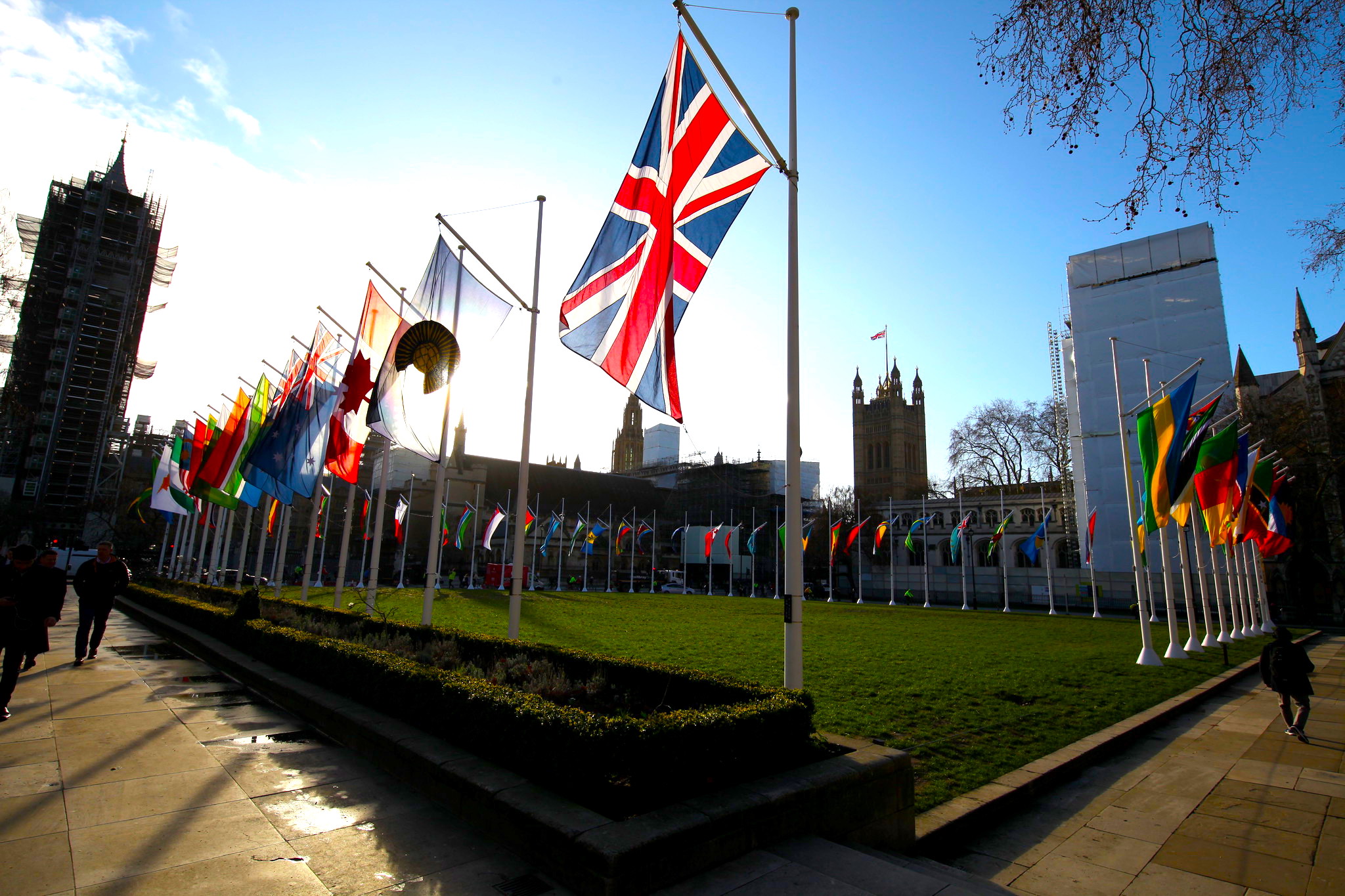
Flags in Parliament Square, London. for Commonwealth Day, March 9, 2020. (Foreign, Commonwealth & Development Office, Flickr, CC BY 2.0)
By Mark Curtis
Declassified UK
 A leading Guardian columnist wrote an article in February listing the world’s “bad guys.” “Across the world,” he asserted, “the bad guys are winning.” His list included Burma, China, Russia, North Korea, Syria and Ethiopia — but he didn’t mention the U.K. or the U.S.
A leading Guardian columnist wrote an article in February listing the world’s “bad guys.” “Across the world,” he asserted, “the bad guys are winning.” His list included Burma, China, Russia, North Korea, Syria and Ethiopia — but he didn’t mention the U.K. or the U.S.
A few months before, another influential columnist at the paper, Jonathan Freedland listed Assad of Syria, Orban of Hungary, Putin of Russia, Bolsonaro of Brazil, Modi of India, and Netanyahu of Israel as the world’s “bad guys.” He also listed Donald Trump, but again not the U.K.
These listings are telling and signify how The Guardian and its sister paper The Observer report on the world and the U.K.’s place within it: The U.K. is one of the good guys.
To the editors of The Observer, postwar Britain has “always” championed a “rules-based international order.” But they claim that the “proud legacy of a consensual, rules-based world order” is now under threat from the likes of Vladimir Putin and Chinese leader Xi Jinping — again, leaders designated as enemies by the British government.
So when an Observer editorial in May last year covered the importance of the United Nations, it lamented only Russian, Chinese and Trump’s years of undermining the international organisation, but again didn’t mention Britain.
That Britain, too, is effectively a rogue state when it comes to upholding the rulings and values of the UN, and any supposedly “rules-based” world order, is not something that appears to trouble Guardian senior writers.
This is despite disastrous British wars in, for example, Iraq and Libya, and the U.K.’s support for most of the world’s repressive regimes, to name just two obvious aspects of the U.K.’s negative impact on the world.
Declassified has undertaken a content analysis of reporting by the The Guardian and the Observer on U.K. foreign policies, covering the two years from April 2019 to March 2021. Our research builds on two previous examinations of national press coverage of British foreign policy, which revealed a similar whitewashing of the realities.
Not all The Guardian’s outputs have been analysed since these are vast, consisting of thousands of articles. But by focusing on some key U.K. foreign policies, the research identifies five clear trends.
Myths of Benign British & US Power
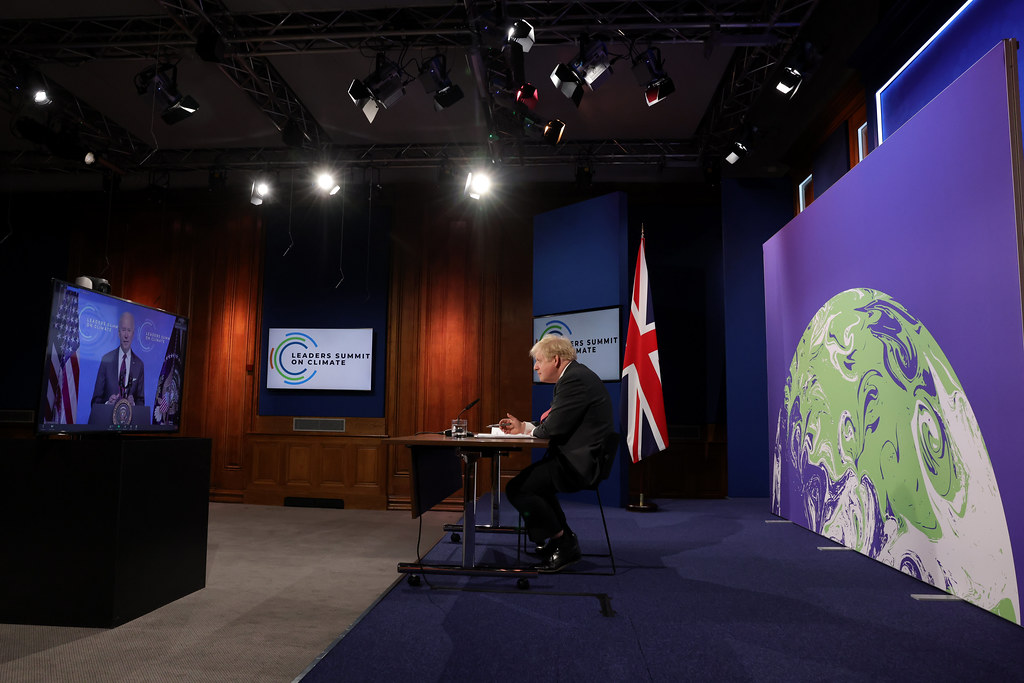
U.K. Prime Minister Boris Johnson attending virtual climate summit on April 22. (Andrew Parsons, Flickr, No 10 Downing Street)
To The Guardian the more the U.K. does in the world, the better this might be. Thus Guardian editors lament the government’s recent cuts in aid partly since it means “we… throw away our claim to global leadership.” Observer editors similarly want to increase Britain’s “international influence.”
Other articles complain that “the U.K. is missing from world leadership,” in contrast to Russia and China which use a “full spectrum of influence.” It follows that Guardian editors back a large military budget, writing in November last year that “the case for a spending upgrade is strong,” indeed a “national priority.”
The U.K.’s world role is routinely seen as benign, and only occasionally does a more accurate picture emerge. One columnist wrote in 2019 that “Across the Middle East, Britain is too often seen as in league with despots and murderers while its subservience to harmful American policies erodes its reputation.”
But the language softens the reality of British policy. Why is the U.K. only “seen” to be supporting dictators, when it routinely does? Meanwhile, the “reputation” Britain supposedly has is one largely manufactured by the U.K. media itself. This routinely presents Britain as benign, and essentially as the “force for good” which the government also claims.
Guardian editors wrote in December last year that “chairing global summits provides an opportunity for the U.K. to rehabilitate its reputation as a responsible player on the world stage.”
A reader of The Guardian and Observer would naturally get the impression Britain is a routine supporter of international law and human rights – that occasionally goes wayward. And this rose-tinted view, impervious to the available evidence, also applies to its coverage of the U.S., the U.K.’s key ally.
The Guardian was brutally critical of just about everything that President Donald Trump did or said. But, just as it regularly heaped praise on President Barack Obama, through his numerous wars, it now writes a stream of supportive, even obsequious articles about Joe Biden and “his offer of hope and light,” as Guardian editors put it last year.
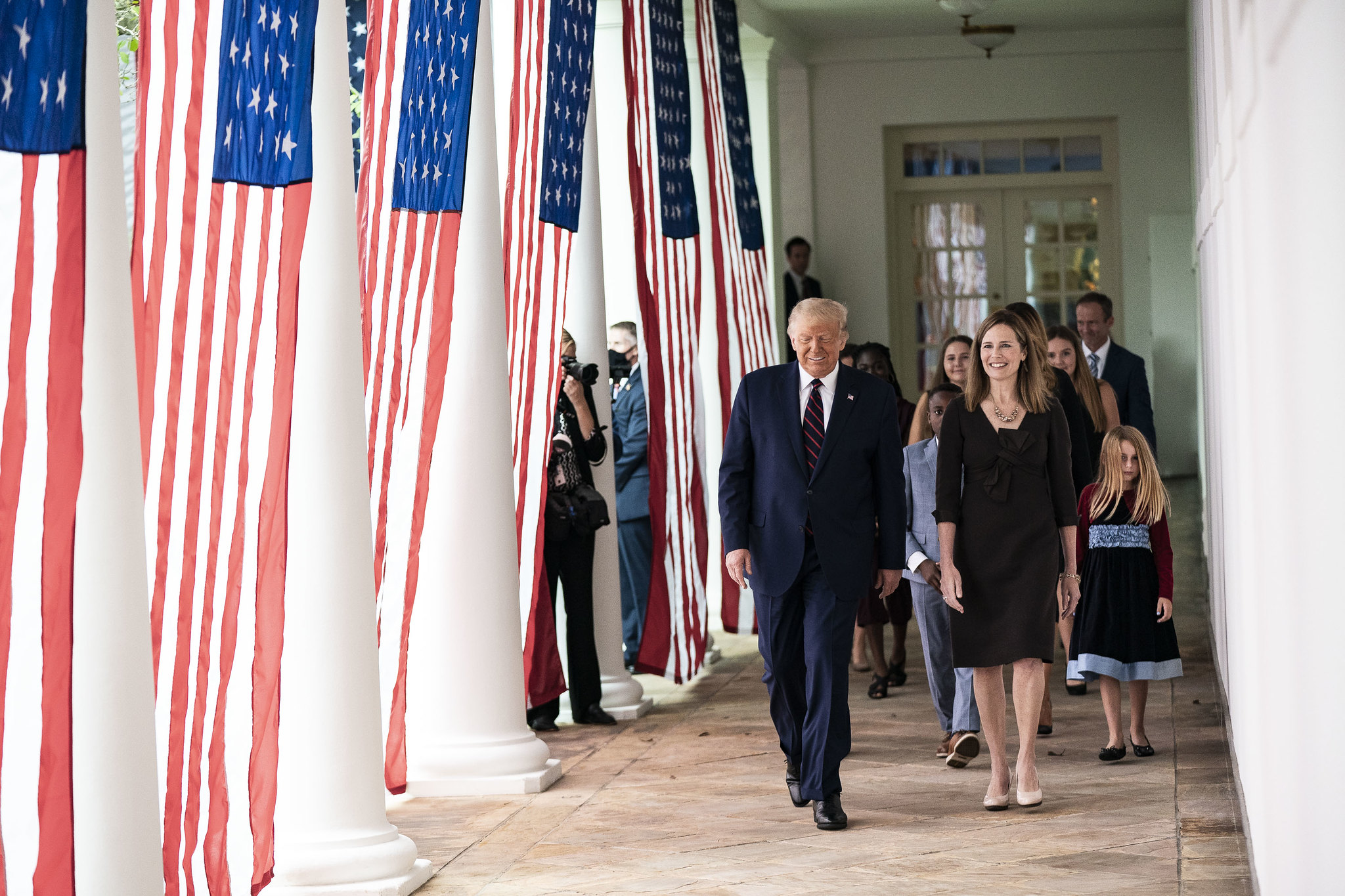
Sept. 26, 2020: Former President Donald Trump and Judge Amy Coney Barrett, the president’s Supreme Court nominee. (White House, Shealah Craighead)
The paper has shown itself to be largely a devotee of Anglo-American “liberal” power, with editors recently welcoming the “opportunity” for Boris Johnson to be Biden’s “military ally.”
When the new U.S. president took the oath of office in January 2021, columnist Jonathan Freedland exulted: “His speech was light on rhetorical splendour, but it matched the moment perfectly. It was like him: humane, decent, rooted.”
To The Guardian, Trump represented a big break with the past. “Washington once championed international law to manage global relations. It now [under Trump] promotes the law of the jungle,” editors claimed in January 2020.
To another columnist, Simon Tisdall, who calls the U.S. “the land of the free,” a difference with Trump was that he “routinely cosied up to ‘strongman’ leaders” such as Turkey’s [Recep Tayyip] Erdogan, Egypt’s [Abdel-Fattah El-Sisi] Sisi and the “unelected Gulf autocrats” – yet this is something every post-war U.S. president has done as a matter of course.
The faith Observer editors are willing to place on Biden has been extraordinary, even by their standards. After his first foreign policy speech as president in February, they noted that “Biden’s way is the diplomatic way, not the way of war” and that his “recommitment to multilateralism” represented “longstanding American policy objectives after a four-year hiatus.”
Three weeks later, Biden bombed Syria, ordering airstrikes against Iranian-backed forces in the country.
Biden is praised despite signs of him backsliding almost immediately on a key campaign promise to stop selling arms for the war in Yemen. His administration has already allowed the U.S. Air Force to take part in a major training exercise with Saudi Arabia and he has restarted Trump’s huge arms deal with the United Arab Emirates, a key member of the coalition bombing Yemen.
Partial Picture
A second key issue in Guardian reporting is that it gives readers a partial picture of the U.K.’s true role in the world. Whole areas of key U.K. foreign policy are excluded from coverage.
Key Guardian foreign affairs writers hardly cover U.K. foreign policy and reveal even less. They all write endlessly, however, about the U.S.
Israel illustrates The Guardian’s selective approach. Dozens of articles are published on Israel, regularly criticizing the illegal settlements in the occupied territories and calling for the U.K. to recognize a Palestinian state.
But coverage is remarkable for failing to reveal U.K. policies backing Israel. For example, we could find no mention at all of the U.K.’s considerable and increasing military cooperation, or of the U.K.’s obvious hypocrisy in formally opposing settlements while increasing trade and investment.
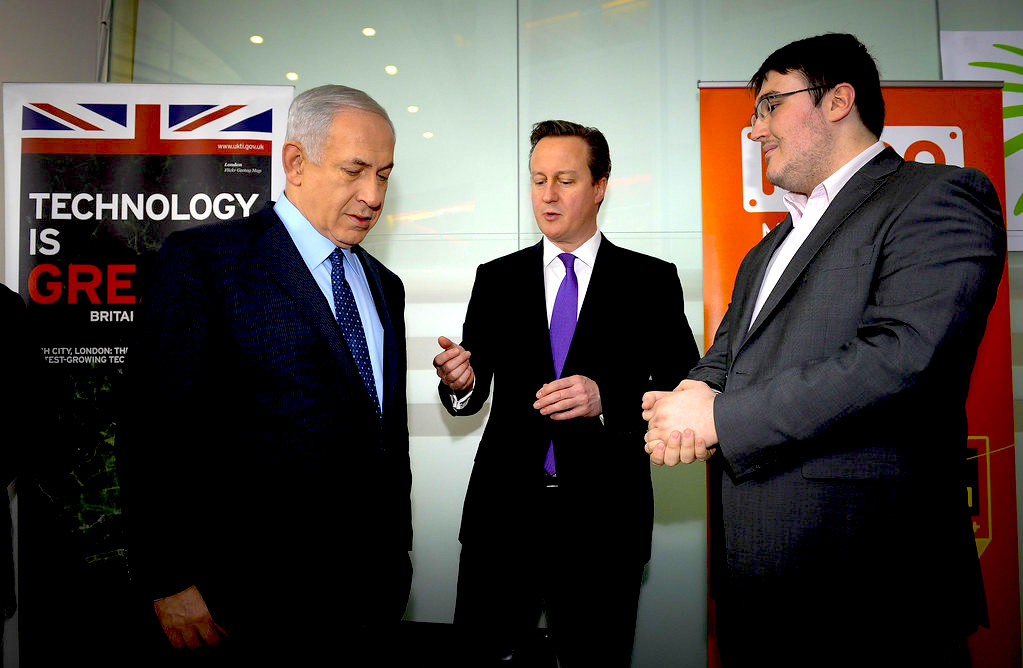
March 13, 2014: U.K. Prime Minister David Cameron, center, with Israeli Prime Minister Benjamin Netanyahu, on left, during a visit to Israel and the Palestinian territories. (Number 10, Flickr, CC BY-NC-ND 2.0)
It’s a similar story with Egypt, on which the paper has published plenty of articles critical of the “relentless repression” under Sisi.
But while several articles mention the U.K.’s failure to condemn Sisi’s human rights abuses, none could be found in the past two years covering details of Britain’s support for the regime. The controversial deepening of military relations were not even mentioned in three editorials on the country.
This was even the case when the paper’s correspondent in Cairo was expelled from Egypt in March 2020. She did not appear to notice while in Egypt that the U.K. was supporting the regime, beyond a passing mention in one article of £218-million worth of U.K. arms exports to the country.
Away from Israel and Egypt, the Gulf state of Oman might seem an obscure topic for the British general public but a media outlet serious about examining U.K. policies would report on it given it is the country’s closest military ally in the Middle East.
The Omani regime hosts dozens of U.K. military officers, three British intelligence bases and a major new U.K. military port. Yet only 15 Guardian articles are tagged “Oman” in the past two years.
Worse, what little coverage there has been is largely puff pieces on Oman’s dictatorship. When absolute ruler Sultan Qaboos died in January 2020 after half a century in power, The Guardian responded with four articles glossing over his repressive rule.
Two of the articles failed to mention repression at all and one noted in passing that “he brooked no dissent.” The final piece assured readers that while the sultan prohibited political parties and public gatherings and was “an absolute monarch,” he was “albeit a relatively benevolent and popular one.”
Rarely Investigates UK Foreign Policy
The Guardian conducts few original investigations into U.K. foreign policies and gives no impression it wants to truly hold the government to account for its actions abroad. Very few foreign affairs articles appear to be based on freedom of information requests — an obvious way to expose government policies.
Of those that have drawn on such requests, it is often non-governmental organisations who have filed them rather than The Guardian’s own staff.
An outlet serious about examining U.K. intelligence and military policies would regularly investigate Britain’s key bases in Brunei, Belize, Kenya and Cyprus, for example. The Guardian does almost nothing on these.
It has published five articles on Belize in the past two years, none mentioning the U.K. military role there. Declassified showed the Ministry Of Defence is allowed to use one-sixth of the country’s entire territory for jungle warfare training, using information already in the public domain for the story.
On the dictatorship in Brunei, there have been several articles critical of the sultan’s stance on stoning gay people, but no investigations into the U.K. military forces there and how they keep the sultan in power.
One article, in 2019, did show that the British police had trained Bruneian officers, some of whom might be involved in imposing the laws punishing gay sex, but didn’t mention the U.K. military presence in the country.
Most astoundingly, despite 170 articles and videos tagged “Kenya” in the past two years, no mention could be found of the extensive U.K. military presence in the country, which involves hundreds of troops and 13 separate training grounds.
The Guardian did not cover a recent wildfire sparked by British soldiers in Kenya, which burnt 12,000 acres (or 4,856,22 hectares), a debacle for which it is now being sued by a local environment group. In contrast, the fire was relatively well covered by tabloids such as the Sun and Daily Mail.
Critical Coverage Limited
Different to the right-wing U.K. press, The Guardian regularly covers and takes a critical line on issues such as arms sales to Saudi Arabia and other human rights abusers, on MI5/MI6 collusion in torture and on the U.K.’s dispossession of the Chagos Islanders.
The paper is also by far the most interested in the British press in covering U.K. tax havens and their role in global tax avoidance. Similarly, some major historical issues, like the British empire and slave trade, are also consistently covered critically.
This coverage probably explains why liberal readers value The Guardian and regard it as different to the overtly establishment, billionaire-owned media.
But there are limits to what the paper covers or reveals, even on these issues. There have been plenty of articles on the Yemen war and the British arms exports to Saudi Arabia fueling it, with editors mentioning the U.K. ’s “utter disregard for the lives of Yemenis.”
But the true extent of the U.K. role in facilitating the war, especially the activities of the RAF and arms corporation BAE Systems, has barely been covered. Ministers have been complicit in war crimes in Yemen since 2015, but have been let off the hook by The Guardian as much as by the rest of the media.
And what happened when a political leader came along who might have transformed U.K. policy towards Saudi Arabia and elsewhere?
The Guardian and Observer devoted huge space during Jeremy Corbyn’s leadership of the Labour Party in 2015-19 to undermine the prospect of a government led by him, as he posed the biggest ever challenge to establishment power, particularly on its ability to project its interests internationally.
The paper’s overtly hostile stance towards Corbyn was widely noted as it all but accused him of being anti-Semitic, while consistently demonizing the Labour leadership for allegedly failing to address anti-Semitism in the party.
Jonathan Cook, who used to work at The Guardian and now writes incisive analyses on the paper’s reporting, wrote that the paper was so opposed to Corbyn becoming prime minister that “it allowed itself, along with the rest of the corporate media, to be used as a channel for the Labour right’s disinformation.”
A study by the Media Reform Coalition found that Guardian reporting on anti-Semitism in Labour involved sourcing skewed in favor of certain factions, false statements or assertions of fact, and a systematic pattern of highly contentious claims by sources that were not duly challenged or qualified in news reports.
By contrast, The Guardian did not accuse Theresa May or Boris Johnson of anti-Semitism over their deep support of the Saudi regime, which is notoriously antisemitic.
This selective coverage of key issues to promote a political agenda is also illustrated in recent reporting on the U.K.’s new military strategies.
Last month, The Guardian’s defense and security editor Dan Sabbagh was, along with some other journalists trusted by the Ministry of Defence, given an advance copy of the government’s new military strategy set out in a Defence Command Paper.
Four days before the paper was published, Sabbagh wrote that “Britain’s military will unveil a shift towards more lethal, hi-tech and drone-enabled warfare… as ministers and chiefs attempt to stave off criticism of impending cuts in the size of the armed forces.”
Two other articles followed that focused heavily on supposed “cuts” to the size of the military that will put the army at “its lowest level since 1714” – and this marked the end of The Guardian’s coverage of the issue.
In fact, the U.K.’s new military strategy follows the government’s announcement of the biggest increase in military expenditure since the Cold War, giving the U.K. the fourth largest budget in the world, outspending the Kremlin.

Interior of a Royal Air Force C130J Hercules conducting low-light refuelling with an airtanker during a routine training over the West Coast of England in 2018. (Defence Images, Flickr, CC BY-NC-SA 2.0)
Far from making the U.K. military less powerful, the declared new strategy and increased funds contain plans with potentially major impacts on other countries. The U.K. armed forces will be “more active around the world to combat threats of the future,” it states, adding that “the U.K. will continue to adopt a forward presence around the world.”
Indeed, the U.K. armed forces will be “globally engaged, constantly campaigning”, the government declared.
Also remarkable was U.K. Defence Secretary Ben Wallace’s presentation of the paper to Parliament. He said the British military “will no longer be held as a force of last resort, but become [a] more present and active force around the world.”
This would involve “moving seamlessly from operating to warfighting.” But this emphasis on war-fighting was not reported by The Guardian. The paper only mentioned in passing in two articles another key government declaration — that it planned to increase the role of its military’s special forces, which operate behind a wall of official secrecy.
Boris Johnson’s government was explicitly outlining plans to fight more wars and deploy more military force across the world but these declarations were reported cursorily or not at all by the country’s leading liberal media outlet.
Platform for the Security State
While The Guardian publishes occasional articles which are mildly critical of Britain’s external intelligence agencies GCHQ and MI6, it just as frequently runs puff pieces on them.
GCHQ seems to hold a special place at The Guardian. Recent articles were headlined “GCHQ releases most ‘difficult prize ever’ in honour of Alan Turing” and “GCHQ aims to attract recruits with Science Museum spy exhibition,” for example.
It is noticeable that the paper conducts hardly any investigations into the role of the U.K.’s intelligence agencies abroad and criticism of them rarely appears in editorials.
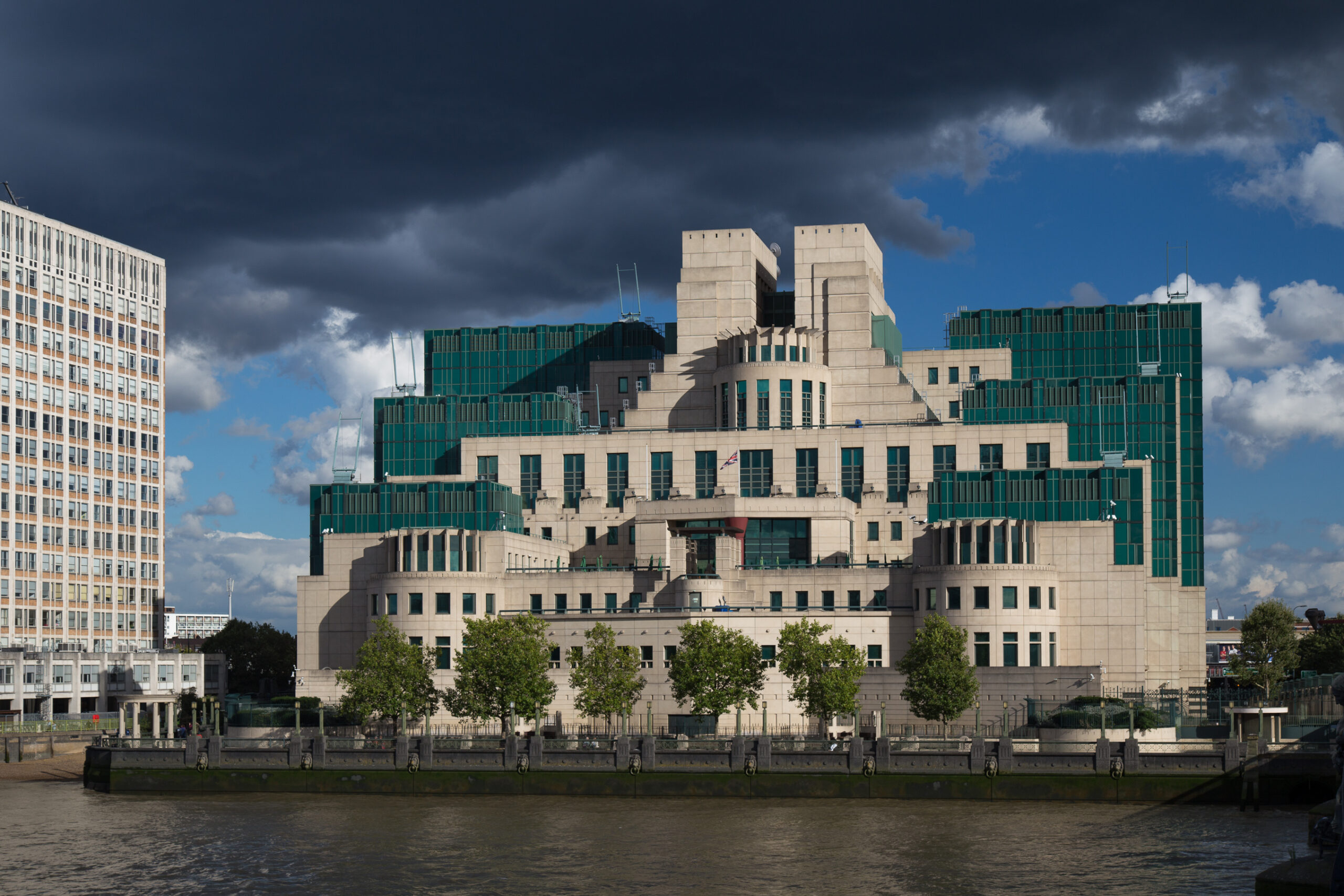
London headquarters of the British Secret Intelligence Service in 2015. (Laurie Nevay, CC BY-SA 2.0, Wikimedia Commons)
Declassified previously revealed how The Guardian has been successfully targeted by the intelligence agencies to neutralize its reporting of the security state, especially after it revealed secret documents supplied by U.S. whistleblower Edward Snowden in 2013.
Indeed, nowadays, the paper regularly acts as a credulous amplifier of often unsubstantiated claims by British intelligence and military figures about the threat posed by Russia and China. It has published a massive 758 articles tagged “Russia” in the past year alone — a helpful focus on the British state’s number one official enemy.
It is not that Russia doesn’t deserve critical attention — clearly it does, especially in light of its illegal occupation of the Crimea, domestic authoritarianism and the likely role of the Kremlin in foreign assassinations, including in Britain.
But Whitehall has interests in exaggerating the threat posed to the U.K. by Moscow, and The Guardian, rather than seeking to expose this, appears more willing to act as a conduit for the state’s “media operations.”
The paper’s coverage of the war in Syria falls into the same category. Dozens of articles (rightly) condemn the Assad regime’s war crimes but few expose the nature of the largely jihadist opposition.
Moreover, The Guardian has recently all but excised the U.K.’s own role in Syria’s war: Declassified could find no mention in the past two years of Britain’s years-long operation to overthrow the Assad regime, together with its U.S. and Arab allies.
Evidence suggests that Britain began covert operations in Syria in late 2011 or early 2012. But The Guardian prefers a different line. Recent articles and editorials constantly lament that the U.K. “failed to act” to stop Syria’s war, ignoring the fact that British covert action very likely helped prolong it.
Meanwhile, Observer editors have noted that “Britain joined a coalition to crush Isis [Islamic State],” without mentioning the U.K. role in trying to overthrow Assad.
They have further written of “Western governments’ neglect of the eight-year war”, simply mentioning “outside meddling by Arab regimes” – and failing to note the massive U.S. covert action programme to arm and train Syrian rebels, costing at least $1-billion.
Columnist Simon Tisdall has been especially misleading. In 2019 he wrote that, “The US has largely stood aside from Syria, confining itself to anti-Isis counter-terrorism operations and occasional missile strikes. So too, for the most part, have Britain and Europe.”
This line comes despite the fact that The Guardian itself in the past uncovered some aspects of U.K. covert action.
Tisdall wrote just last month that in countries such as Syria and Libya during the Arab Spring of 2011, “as events turned unpredictable and Islamists got involved, the west backed away.”
The reality is the opposite: it was then that Western intelligence agencies began working alongside Islamist forces seeking to overthrow Assad and Gadaffi in Libya, with horrendous human consequences in the region, and in Britain itself, serving to empower hardline and jihadist groups.
Much of The Guardian’s framing of issues simply amplifies the messaging Whitehall wants the public to receive. The new enemy is China and the number of articles across the British press demonizing the country is exponentially increasing. The correlation between state and media priorities is clear.
One piece written by Tisdall was sub-headed: “The fight for democracy in Hong Kong is the defining struggle of our age.” He wrote that this was “a contest between liberal, democratic laws-based governance” symbolised by Hong Kong and “authoritarian, nationalist-populist ‘strongman’ rule” represented by China.
The analysis has some merit but conveniently makes China, an official enemy, the great foe. Why not Egypt as the defining struggle of our age, where a U.K.-backed dictator is repressing human rights defenders and the media, or Bolivia, where a democratic progressive government is fending off U.K. and U.S. interference?
It follows that The Guardian has run more pieces in the past two years on Russian opposition figure Alexei Navalny than on imprisoned journalist and publisher Julian Assange. Yet the latter is incarcerated in a maximum security prison 22 kilometres from The Guardian’s head office in London.
The paper now publishes editorials and articles arguing strongly against extraditing Assange to the U.S. where he faces life in prison. Much of this has likely come from external pressure. Last October WISE Up, a solidarity group for Assange, staged a demonstration outside The Guardian’s office to protest against the paper’s failure to support Assange in the U.S. extradition case.
The paper’s current support of Assange follows years of demonizing him. At least 44 articles since 2010 have negative headlines and an apparent campaign was conducted in 2018 falsely casting Assange as an agent of Russia. It culminated in a false front-page story which remains on The Guardian’s website.
“It’s not difficult to despise Julian Assange”, an Observer editorial in April 2019 began, just after Assange had been dragged from the Ecuadorian embassy. An opinion piece by columnist Hadley Freeman was published comparing Assange to a rotten fish that needed to be thrown out.
Despite the implications for media freedom posed by the U.S. prosecution of Assange, and that The Guardian financially benefited from WikiLeaks’ previous exposures, the paper has done almost nothing to investigate the legal conflicts of interests in the case, which so obviously point to a stitch-up.
Limited Dissent
Professor Des Freedman of Goldsmiths, University of London, who is the editor of a new book on The Guardian, told Declassified: “While The Guardian claims to offer high-quality, independent journalism, its reporting and comment all too often dovetail with establishment agendas and interests. For all its welcome criticism of corruption and inequality, it repeatedly attacks left-wing voices aiming to provide a meaningful challenge to corruption and inequality.”
He added: “It condemns authoritarianism but regularly turns a blind eye to the British state’s role in arming and propping up authoritarian regimes. From its very origins 200 years ago, it embodies a kind of liberalism that considers itself progressive but is so steeped in elite networks of power that it fails to recognise its own complicity in maintaining things essentially just as they are.”
The media monitoring organisation Medialens has consistently exposed how The Guardian acts to limit dissent, performing an effective propaganda function for the state. It argues that the paper’s more progressive writers falsely convey the idea that “progressive change can be achieved by working within and for profit-maximising corporations that are precisely the cause of so many of our crises.”
Jonathan Cook similarly asserts that such journalists “are there to sharply delimit what the left is allowed to think, what it can imagine, what it may champion.”
Indeed, The Guardian is being subject to increasing analysis showing that while it sometimes exposes how the British establishment works, it acts largely in support of it – and that in recent years it has largely shredded the capacity it once had to do more independent, investigative reporting.
The paper’s political positioning, on the right wing of Labour and mainstream of the U.S. Democratic Party, always suggested it would act to stave off more fundamental change when the time came. With Corbyn, this was clearly borne out.
In this, The Guardian can be considered the media representative, and ideological pillar, of the liberal wing of the British establishment. In different ways, The Guardian is as much a defender of Anglo-American power projection as the right-wing establishment, being especially supportive of foreign wars and interventions and the global influence that it complains the U.K. has lost.
To millions of its readers The Guardian offers critical, independent reporting, and this is real on certain issues. But its limited dissent ensures that critical takes are within boundaries that do not reveal the true role of the government and state, and that protect it from proper scrutiny and challenge.
The paper provides a misleading picture of what the U.K. does in the world. Not only that, The Guardian’s role is just as pernicious as that of the right-wing media which are routinely slavish mouthpieces of the establishment.
The reason is that The Guardian co-opts liberal and “progressive”-minded people, who might like to think they are challenging the establishment, into thinking they are being told the truth.
Mark Curtis is an author and editor of Declassified UK, an investigative journalism organisation that covers Britain’s foreign, military and intelligence policies. He tweets at @markcurtis30.
This article is from Declassified UK. Follow Declassified on Twitter, Facebook and YouTube. Sign up to receive Declassified’s monthly newsletter here.
The views expressed are solely those of the author and may or may not reflect those of Consortium News.
Please Support Our
Spring Fund Drive!

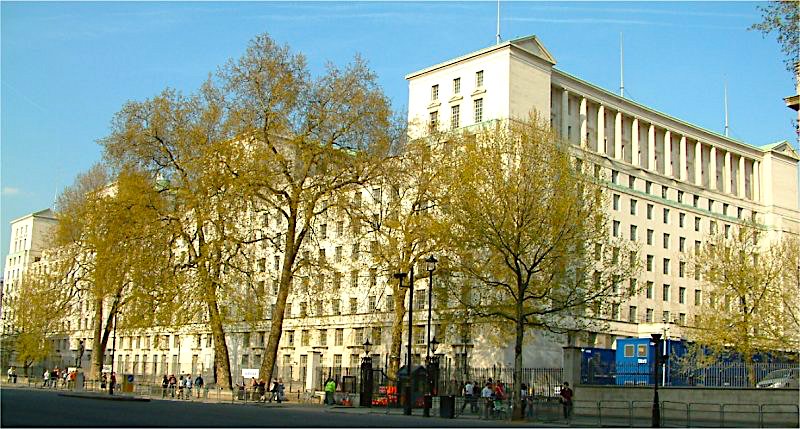
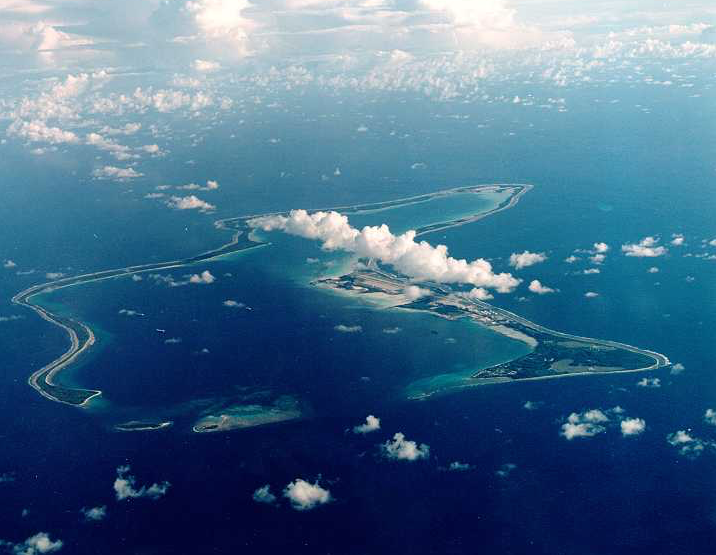
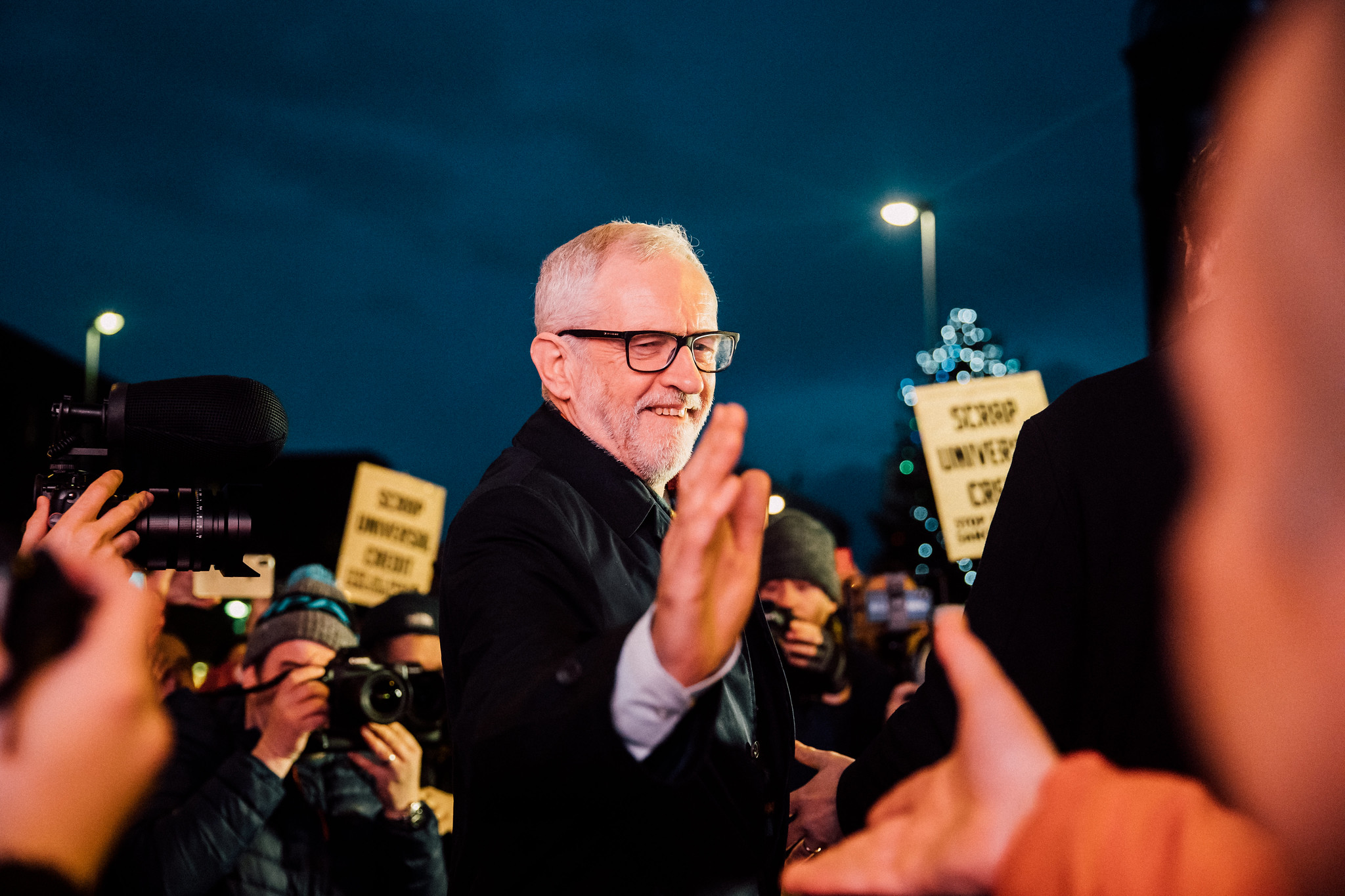
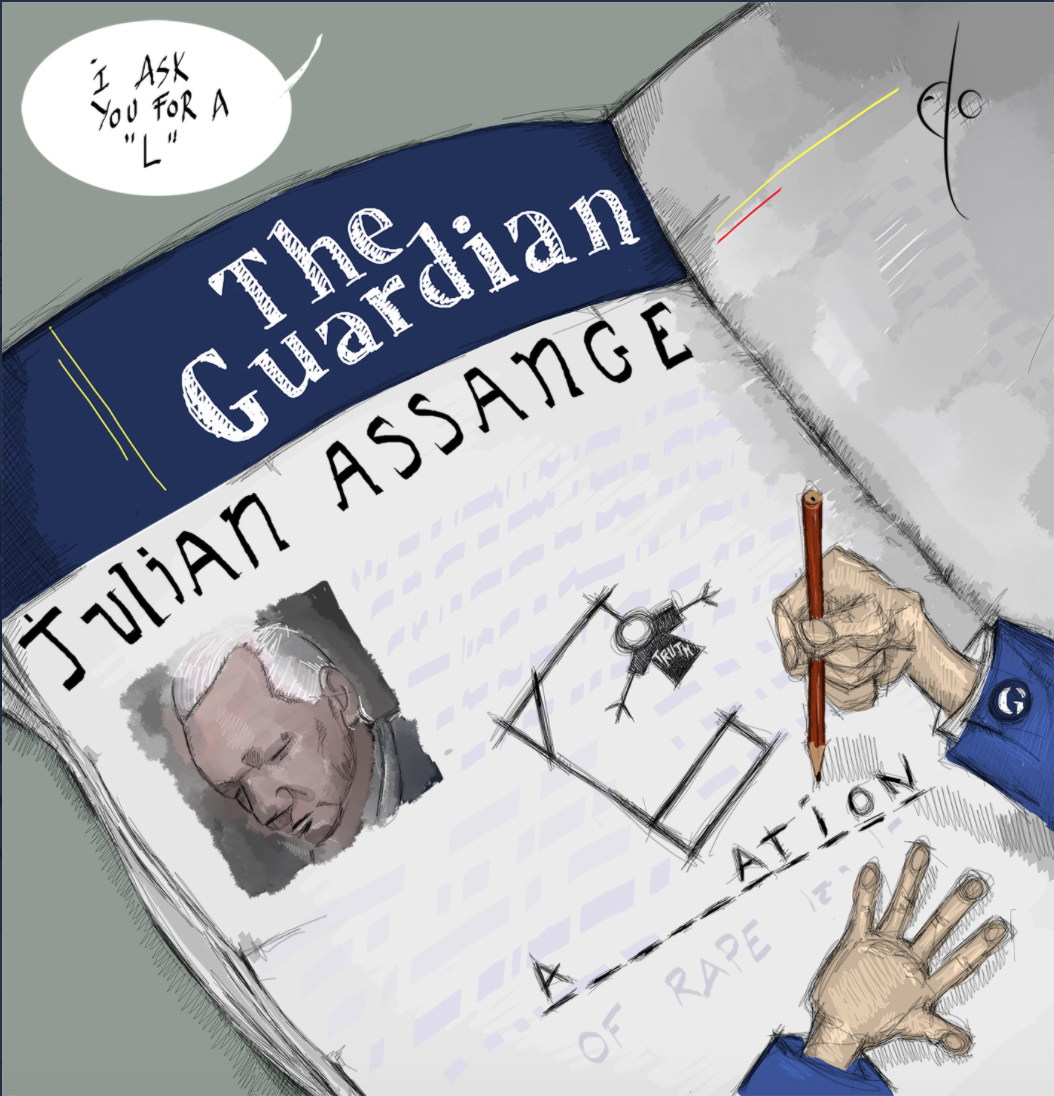


I used to read The Guardian for an outside view of events inside the USA. But then they turned all-Russia hatred, all the time, like flipping a switch, after the CIA coup in the Ukraine, defending Nazis threatening to eliminate all the Russian-speakers, half the country. No wonder the Russian-speakers revolted! They have experience with Nazi death threats!
Likewise, the Guardian’s coverage of China became not only ignorant, but silly. For example, an articlle claiming that one can’t used Chinese characters in text messages! Five minutes of fact checking would have told them otherwise.
Finally, the great lover for Hillary Clinton, in spite of her long record of being just another neo-liberal warmonger, not noticeably different from Obama, Bush I, Bush II, Bill Clinton, etc., etc.,
I no longer trust any Western media on China or Russia, with a few exceptions, such as Consortium News! Even there, I try to read as critically as I can. I rely on my personal experiences. Eg, “Uighur genocide!” looks as dodgy as “Weapons of Mass Destruction! Saddam is Hiler!!!” or “Nicaragua Could Attack Texas!” or “N. Vietnam attacked our destroyer in the Tonkin Gulf!”, etc., etc.
We must always make allowances for how the British, Dutch, Portuguese, Spanish, and now Americans, see THEMSELVES compared to how significant they are perceived to be by the world population at large. Like many of us personally, we can’t let go of the image of what we USED TO be when we were younger.
Mark Curtis, darn near perfect article. It’s about time someone took a long, critical look at The Guardian and its fall from grace. Thank you. However, this is completely wrong on your part: “It is not that Russia doesn’t deserve critical attention — clearly it does, especially in light of its illegal occupation of the Crimea, domestic authoritarianism and the likely role of the Kremlin in foreign assassinations, including in Britain.” 1. Russia does not “occupy” the Crimea. Crimea is Russian, has been for centuries, speaks Russian, is loyal to Russia and voted overwhelmingly to be part of the Russian Federation. Also, Russian troops did not “invade” the Crimea as MSM has said; 25,000 troops are stationed there at Sevastopol, a Russian naval base since 1783. 2. The “likely role of the Kremlin in foreign assassinations, including in Britain” is false in that it’s never been proven and is related time and again in the western press as being fact. Remember when Theresa May within an hour was screaming Putin did it when Sergei and Yulia Skripal were found poisoned on a bench in Salisbury? If Putin had wanted to poison Sergei Skripal, he had eight years to do it when the man was in a Russian prison; instead, he released him to go to England. As for “authoritarianism,” I suggest you go to Russia where the people either laugh at Navalny or don’t know who he is, and praise Putin who brought the country out of poverty and into a prosperous country with a large middle class. Putin worries about the young people who don’t know how it was under the Soviets; they are the only ones fooled by Navalny, except the US/UK. He is an opportunist and the most racist man I’ve ever heard speak and makes television ads viciously attacking Muslims. Please, in the future don’t take the establishment line on Putin/Russia (or China, for that matter).
I thought that was weird about Crimea too, as I also read that the people there voted to remain with Russia—and why not as the area was Russian. I read somewhere that Kruschev gave it away at some point.
And as to the Navalny person—I finally saw an interview with him—-I know it’s not fair to judge people on how they look, but OMG when he speaks—– all I would think of was,” this man would be the lying date from hell.” Weird, I know, but he seems to enjoy speaking of himself and how the world has wronged him.
I also don’t understand why America has focused only Julian Assange, as the Guardian profited a lot by working with him—so I really don’t have any credibility for the UK or the USA here. Sadly Boris seems pretty useless too. He supposedly went into the hospital with a severe case of covid 19—-and was on a ventilator —-but he was on that for 3 weeks or so, and I wondered how Boris could go in fat, and come out just as fat after that!
Quite…I was fully appalled by this writer’s clear Russophobia and his repeating of the western lies about what President Putin is supposed to have done… Those two poisonings (Salisbury and of Navalny) were both clearly MI6/CIA/western “think tank”/NGO put up jobs, charades…totally unbelievable (as if any able country would advertise their machinations by using a poison that screamed “we did it” even though unsuccessfully); just like the business with the explosions in the Czech Republic and Bulgaria – years go by, no accusations against Russia, then all of a sudden (timing, yeah) they both accuse the same blokes who effed up the Skripal job…right…
As for the Solar Winds business…hmmm NSA, anyone? Or any one of the multiple kindred agencies here???
After I read those allegations, those acceptances of the west’s govt’s and mass medias’ accusation (unfounded) against Russia, could not read further….
Good poits, Rob Roy. Thank you.
The hypocrisy is overwhelming and could drive you insane if you hold onto naive optimist beliefs. I’m an optimist, but lets get over the collective naivete shall we? The crap lately being pushed and prolonged by the “corporate/gubment/non-intelligence entities” media propaganda echo chamber BS machines just regurgitating “the script” they are directed to publish in order to promote-group think, has reached the TIPPING point in my view.
~
Big changes on the way. Can you feel it? We are on the precipice.
~
By the way, as a total aside…….oh forget it. But, there was an article in Nature magazine back in September 2020 regarding innate T cell response 81% of the homo sapien population apparently already has for the “new” COVID, which may be new but I don’t think it is novel. Anyhow, why doesn’t the media report on this sort of thing more and why do the bureaucrats continue to make stupid decisions? Oh, I’ll tell the answer. The answer is because of FEAR. Fear is a killer.
~
Anyhow, eventually hypocrisy results in the loss of something the hypocrites might hold close to their hearts. Consider the whole concept of the “United Kingdom” if you want an example. The name itself is full of hypocrisy because it ain’t united nor is it a kingdom. Time to split it up and then lets get on with splitting other things up (besides atoms) for the benefit of all People.
~
BK